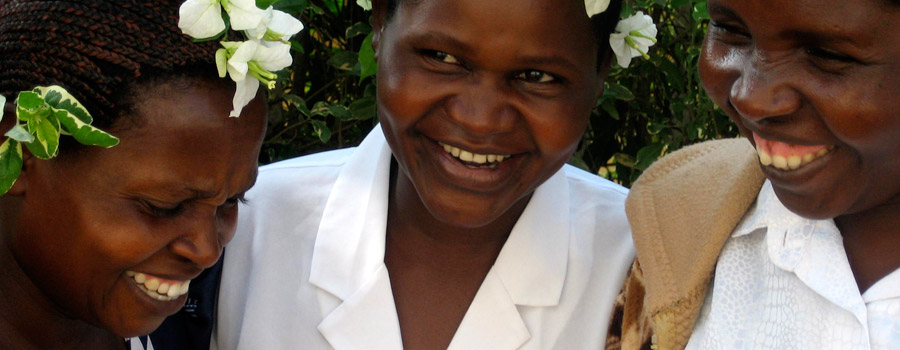Transformation des vies :
L’histoire de Ramatou
In March 2009, a young woman arrived at the Africa Mercy, a floating hospital operated by Mercy Ships International. Africa Mercy provides, among other medical services, fistula repair services, which are funded by the U.S. Agency for International Development (USAID) and managed by EngenderHealth. Ramatou had traveled from the northern part of Togo, seeking help for her constant leaking. She had been through two pregnancies, both obstructed and ending in cesarean section. Both times, the baby was stillborn, and after the last one, Ramatou started leaking urine continuously. Her husband left her, and she moved back in with her parents. After four years of suffering, she heard about the ship docked in Cotonou and managed to make her way there.
It became clear soon after meeting Ramatou that she was a gifted and very special young woman. As many fistula clients come from remote areas in the northern parts of Benin and Togo, volunteer translators could not always speak their languages. But Ramatou could, and she gladly helped out.
During the couple of weeks that she stayed at the hospital, she connected closely with the ward counselors. She was touched by the love she had seen in the nurses, counselors, and day volunteers, and said: “Back home, no one wants to be with me. They won’t invite me to their homes because I leak and smell. When I came here, you gave me a clean bed, and whenever my bed got wet, you put on new and clean sheets. You touched me and cared for me.”
After her surgery, all were sad to discover that she was still leaking. It was a difficult day for Ramatou, but she would not lose hope. It was decided that she should come back a few months later for a second surgery.
She returned about a month prior to her scheduled appointment, simply because she knew that staff were not able to communicate with the other women. She told them that her intention was not to “sneak into line”; but she just wanted to help with translation. And help she did: It would have been very difficult to manage without her.
Finally, she received her second surgery, in which the surgeon closed five fistulas between her uterus and vagina. When the indwelling catheter was removed after almost two weeks, she was dry.
Ramatou volunteered to stay on for the next month, helping out as a translator. She also used her own experiences to encourage her “sisters” in the ward. This turned out to be a unique way of building Ramatou’s self-esteem, as well as giving her useful work experience that might be valuable for her in the future.
Now back in her village, she still keeps in touch with the fistula team, and is eager to bring other women suffering with fistula to the ship when it comes to Togo again.
![[ Skip Navigation ]](../../data/images/c.gif)



